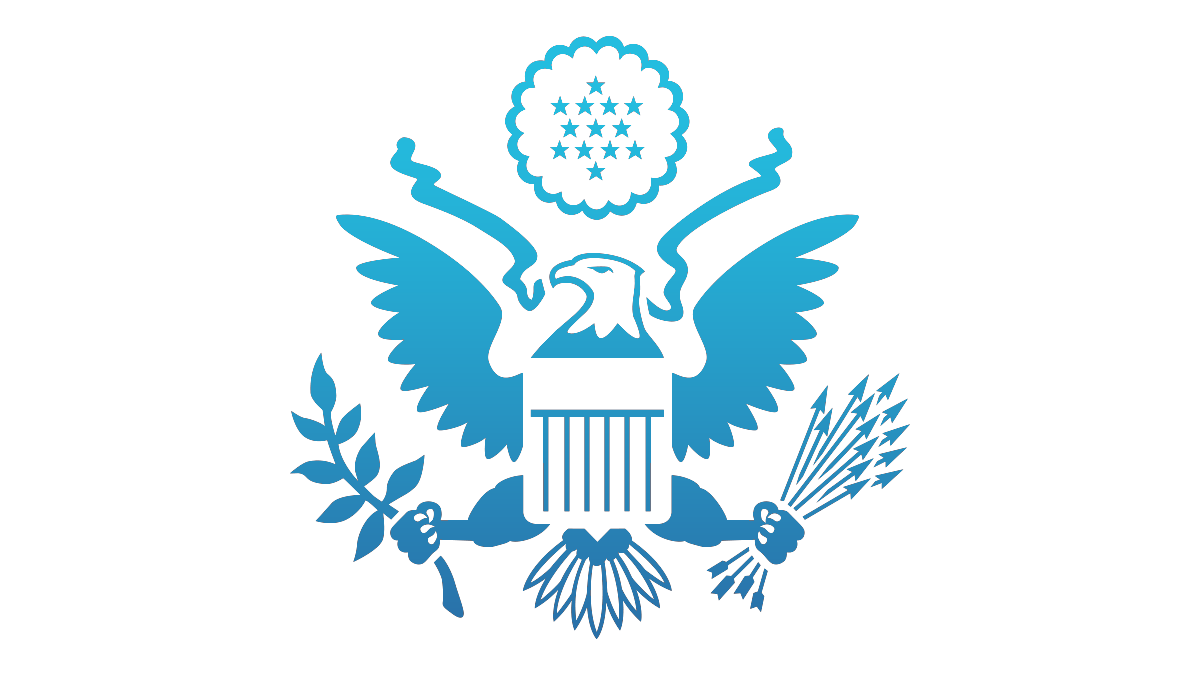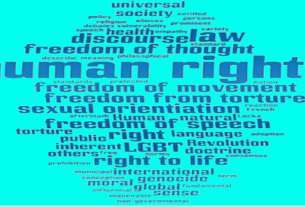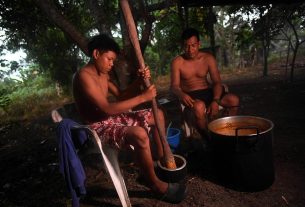On International Anti-Corruption Day and on the eve of Human Rights Day the United States is taking the following actions to promote accountability for perpetrators of corruption and human rights abuse around the world.
The Department of State is designating 14 individuals, including immediate family members for involvement in significant corruption and one official for his involvement in a gross violation of human rights, pursuant to Section 7031(c) of the annual Department of State, Foreign Operations, and Related Programs Appropriations Act (“Section 7031(c)”), rendering them ineligible for entry into the United States. The Department of State is also further taking steps to impose visa restrictions on dozens of individuals pursuant to multiple policies under section 212(a)(3)(C) of the Immigration and Nationality Act.
Additionally, on the anniversary of President Biden issuing Presidential Proclamation 10685, the Department has taken action under this authority to restrict the visas of individuals who have enabled, facilitated, or otherwise been involved in significant corruption and their immediate family members.
Concurrently, the United States, in close coordination with the United Kingdom, is sanctioning nine individuals and 19 entities comprising a global corruption network based in Zimbabwe under the Global Magnitsky sanctions program and three individuals and entities in Yemen and Syria connected to human rights abuses under the Global Magnitsky sanctions program and the Syria sanctions program. For more information about Treasury’s action, please see their press release.
ACTIONS TAKEN TO PROMOTE ACCOUNTABILITY FOR CORRUPTION
Artan Grubi, Former Deputy Prime Minister of North Macedonia
Enver Bexheti, Judge for North Macedonia Court of Appeals
- Pursuant to Section 7031(c), the Department of State is publicly designating Artan Grubi and Enver Bexheti for their involvement in significant corruption by accepting bribes to undermine judicial processes tied to the criminal conviction of Sasho Mijalkov, director of North Macedonia’s Administration for Security and Counterintelligence (UBK). Mijalkov was designated in 2022 for significant corruption under Section 7031(c), and OFAC sanctioned him pursuant to E.O. 14033. As part of this action, Grubi’s immediate family members are also designated.
Republic of the Marshall Islands
Kevin Kedi, Councilman for Rongelap Atoll in the Republic of the Marshall Islands (RMI)
- Pursuant to Section 7031(c), the United States is publicly designating Kevin Kedi for his involvement in significant corruption by accepting articles of monetary value in exchange for his backing of proposed legislation while serving as a councilman. Kedi accepted a cash bribe in exchange for his support of a bill, then under consideration in the RMI legislature, to create a semi-autonomous region in the RMI.
Kapila Chandrasena, Former CEO of Sri Lanka Airlines
- Pursuant to Section 7031(c), the Department of State is publicly designating Kapila Chandrasena for his involvement in significant corruption. Chandrasena accepted a bribe while serving in his capacity as Sri Lankan Airlines CEO in exchange for ensuring Sri Lanka purchased Airbus aircraft for over market value. As part of this action, his immediate family members are also designated.
Udayanga Weeratunga, Former Ambassador to Russia
- Pursuant to Section 7031(c), the Department of State is publicly designating Udayanga Weeratunga for his involvement in significant corruption. Weeratunga orchestrated and personally benefitted from a corrupt scheme involving the procurement of MiG aircraft for the Sri Lankan Air Force. As part of this action, his immediate family members are also designated.
Transnational Corruption Network
The United States designated the following individuals and entities under E.O. 13818 (Global Magnitsky) for their connection to corruption or corrupt actors related to Zimbabwe:
- Nine individuals and 19 entities, for their connection to the Kamlesh Pattni (Pattni) gold and diamond corruption network in Zimbabwe. Pattni first came to the world’s attention as a result of the infamous Goldenberg scandal in Kenya in the 1990s, wherein he was accused of manipulating Kenyan export incentives and corrupting senior Kenyan government officials. Although Pattni denied any wrongdoing, he fled Kenya and soon shifted his attention to Zimbabwe, where he befriended then-President Robert Mugabe and reestablished a scheme similar to the one he ran in Kenya. Pattni, as featured in public reporting and elsewhere, has enlisted a range of couriers and supporters to engage in export incentive fraud and bribery to enable his illicit profiting from the exportation of gold and diamonds from Zimbabwe. This action was taken in close coordination with the United Kingdom, which concurrently designated Kamlesh Pattni, a UK citizen, and additional individuals.
ACTIONS TAKEN TO PROMOTE ACCOUNTABILITY FOR HUMAN RIGHTS ABUSES AND UNDERMINING DEMOCRACY
- Misuse of Commercial Spyware: Pursuant to Section 212(a)(3)(C) of the Immigration and Nationality Act, the Department of State is taking additional steps to promote accountability for over 20 individuals involved in the misuse of commercial spyware, or their immediate family members.
- Transnational Repression: Pursuant to Section 212(a)(3)(C) of the Immigration and Nationality Act, the Department of State is taking further action under the Khashoggi Ban visa restriction policy to promote accountability for transnational repression. To date, this Administration has taken steps to impose visa restrictions for over 100 individuals or their family members from Belarus, Hong Kong, Iran, the People’s Republic of China, Russia, Saudi Arabia, South Sudan, and Venezuela who have been involved in transnational repression against dissidents or their family members, including harassment over social media platforms or other digital means, the misuse of INTERPOL red notices, forced repatriation or kidnappings abroad, kidnapping plots including of a U.S. citizen, and murder, among other actions.
- Wrongful and Abusive or Unjust Detentions: Pursuant to Section 212(a)(3)(C) of the Immigration and Nationality Act, the Department of State is creating new visa restriction policies to promote accountability for abusive detention practices around the world. The first policy expands on existing visa restrictions for individuals involved in the wrongful detention of U.S. nationals, now allowing the Department of State to impose visa restrictions on their family members. The second policy seeks to promote accountability for the abusive or unjust detentions of foreign nationals.
Alpius Hasim Madi, Deputy Koramil Commander
- Pursuant to Section 7031(c), the Department of State is publicly designating Alpius Hasim Madi for his involvement in a gross violation of human rights, namely the extrajudicial killing of Yeremia Zanambani in Papua in 2020.
Pursuant to Section 212(a)(3)(C), the Department of State is announcing steps to impose visa restrictions on 17 Russian officials and Russia-appointed proxy authorities for undermining Ukraine’s sovereignty, territorial integrity, or political independence through sham elections held in occupied Ukrainian territories.
The United States re-designated Fawaz al Akhras, a resident of the United Kingdom and the father-in-law of Bashar al Assad, pursuant to E.O. 13894 section 1 (i)(E) for materially assisting, sponsoring, or providing financial, material, or technological support for, or goods or services to or in support of, Bashar al Assad. The United States designated Bashar al Assad pursuant to E.O.’s 13572 and 13894 in 2011 and 2020, respectively, in relation to the Government of Syria’s perpetration of serious human rights abuses against the Syrian people and Bashar al Assad’s actions obstructing, disrupting, or preventing a ceasefire or a political solution to the Syrian conflict. As has been documented by the U.S. Department of State and non-governmental organizations throughout the duration of the Syrian conflict, Bashar al Assad’s government perpetrated serious human rights abuses in Syria, including failing to investigate extrajudicial killings by regime security forces, use of torture and sexual violence in detention facilities, use of enforced disappearances and arbitrary arrest of political dissidents, withholding of medical attention in detention facilities, denying international monitors access to detention facilities, denying detainees access to a fair or timely trial, seizure of land or property, disrupting humanitarian access to opposition areas, and transnational repression of political activists abroad.
Pursuant to Section 212(a)(3)(C), the Department of State is taking steps to impose visa restrictions on seven individuals involved in undermining peace, security, or stability in the West Bank, including through committing acts of violence or taking other actions that unduly restrict civilians’ access to essential services and basic necessities.
The United States is sanctioning the following individual and entity under E.O. 13818 (Global Magnitsky) for their connection to serious human rights abuse in Yemen:
- Abdulqader Hasan Yahya al-Murtadha (al-Murtadha), head of the Houthi National Committee for Prisoners’ Affairs (HNCPA), and one Houthi entity, the HNCPA. Al-Murtadha, in his role as the head of the HNCPA, has been directly implicated in torture and other forms of cruel, inhuman, or degrading treatment or punishment of detainees in the Houthi-run “prison” system. The Houthi-run “prison” system continues to detain individuals exercising their human rights and fundamental freedoms, including journalists, human rights defenders, political opponents and NGO, UN, and U.S. locally employed staff, among others.



